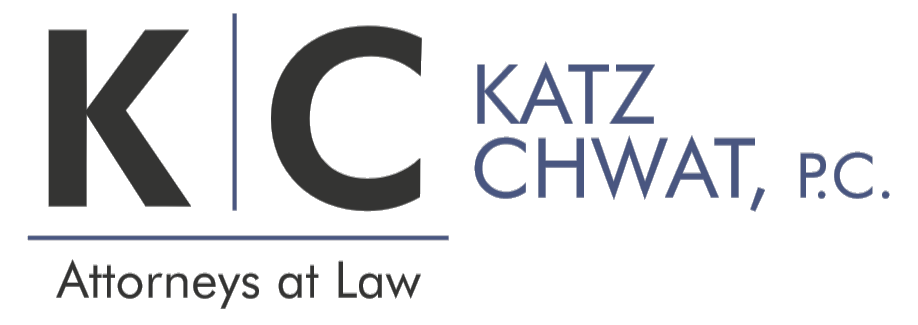Oftentimes, an individual’s largest asset is an operating business. Although the business is frequently passed down from generation to generation, at some point, the business may have to be sold. In some situations, an outside buyer will purchase the business, and in others, it is purchased and sold within the family. However, selling a closely-held business is not always simple, and there are a number of issues that need to be considered.
Who is the Successor?
One issue a number of business owners face is, who will be the successor? Many owners of closely-held businesses seek to have a transition within their family, assuming there are children that could operate the business. However, the owner should be advised that equal ownership among the his or her children may not be an ideal solution. If, for example, the business owner has two children, but only one child is involved in the operation of the business. This becomes an issue for the business owner because he or she must decide whether to treat his or her children differently as it relates to the transfer of the business. Alternatively, the business owner could consider selling the business to the child that is involved in the business during his or her lifetime.
In the event the business owner has no children involved in the business, what should the succession plan be? In this case, the advisors and professionals that work with the company can assist the business owner with finding a buyer, either inside or outside the company. Many business owners seek to sell their businesses internally to an existing employee, in hopes that there will be a smooth transition. While this is a viable option, the business owner should be sure to analyze whether the employee is the appropriate fit for management. In any event, the owner should take into consideration the dynamics of the business, and how a new owner will affect its operations.
Shareholders’/Operating Agreement
In the event there are multiple owners in a business, the first step in creating a plan for the succession of the business is to ensure there is an agreement among the owners. A Shareholders’ Agreement (or an Operating Agreement in the case of an LLC) is an agreement among the owners of a company that sets forth default provisions regarding the rights and responsibilities of the owners. Assuming there is such an agreement, there are a number of important provisions that the owners should consider and be made aware of.
The Shareholder’s Agreement should set forth the restrictions on transfer of an owner’s interest. In other words, the owners can agree in advance that certain persons may, or may not, succeed to the ownership of the business. They could also agree that certain parties may become an economical owner, and receive distributions, but may not partake in the management of the business. Additionally, a properly drafted agreement will also outline the provisions for the transfer of an owner’s interest upon the happening of different events. For example, what happens upon an owner’s death? Will the remaining owners or the company purchase the deceased owner’s interest? The agreement can also put limitations or set guidelines for an owner’s retirement or in the event of disability.
These are just a few important provisions that should be included in any agreement among the owners. Advisors that work with closely-held businesses should always urge the owners of a company to create such an agreement, in case a dispute arises among them in the future. Although the owners can always come to a unanimous agreement contrary to what is stated in the document, the agreement serves as the default in case an understanding cannot be reached.
Valuation
When an owner is selling or transferring his or her interest in a closely-held business, how does the interest get valued? There are a number of different ways owners can value their businesses, and they may want to consult the accountant of the company, as he or she may be a significant resource in making such a determination. First, the owners could simply set forth the value of the business each year. This requires the owners to regularly review the stated value, as stale valuations could have a negative impact on the parties.
An alternative method of valuation is by using a formula, based upon the financial statements and/or tax returns of the business. Business owners should be sure to carefully create an accurate formula that properly reflects the value of the company. A poorly drafted formula can allow a singularly good or bad year to have an excessive impact on the value. The company accountant could also assist the owners in creating the formula, based on the most recent tax returns for the business. Finally, the owners could consider valuing the business through the use of an appraisal. In this instance, an independent professional would be hired to provide the value of the interest being transferred.
Regardless of the method used for the valuation of the company, the owners should consider whether using minority and marketability discounts, is appropriate and warranted. A minority discount would be utilized when the interest being transferred is not a controlling interest in the company. A marketability discount can come into play when the interest being transferred is not marketable because of the lack of a public exchange or market for sale. In all events, when it comes to valuing the business, the owners should seek advice and guidance from those who may have extensive knowledge of the company’s financial situation, such as an accountant or financial professional.
Acquisition of Insurance
In the event there are multiple owners in a business, the owners should consider the acquisition of life insurance to fund any potential buy-out or provide working capital. If one of the owners were to pass away, the remaining owner(s) would need to have enough liquid funds to compensate the deceased owner’s family or estate. Additionally, the company would be faced with the burden of replacing the deceased owner, in the event there is an operating business.
If, however, there was available life insurance, those funds could be utilized to pay the deceased owner’s estate with no negative monetary impact on the company. Either the owners or the company could be the owner(s) of the policy, and the coverage amount could be the basis for the valuation of the deceased owner’s interest, as discussed above. Insurance is a valuable tool when planning the succession of one’s business because it alleviates a financial burden upon an owner’s passing. It also dictates what will happen to the owner’s interest upon his passing – either the company, or the remaining owner(s), will succeed to the interest, based on the ownership structure of the life insurance.
Meeting with a Professional
Overall, there are a number of issues when it comes to business succession planning. Frequently, if a business owner is looking to sell or transfer his business, he will seek not only legal advice, but advice from the company’s accountant as well. The above topics are only a few issues that may arise when a business owner is looking for a transition. If you are considering buying or selling a closely-held business, or are ready to consider some plan of succession for your business, contact Katz Chwat, PC to discuss how we can assist.
Posted in: Business Transactions

